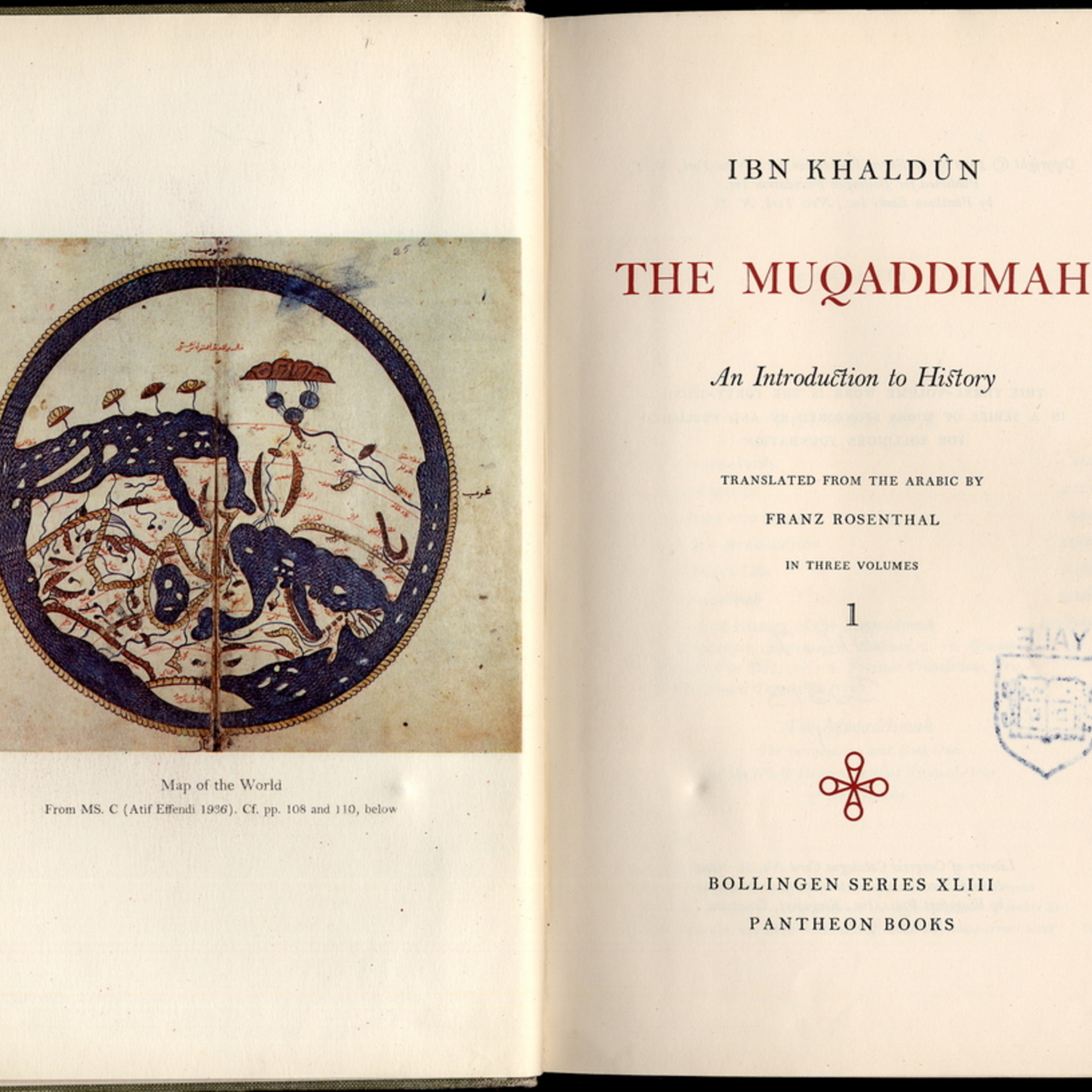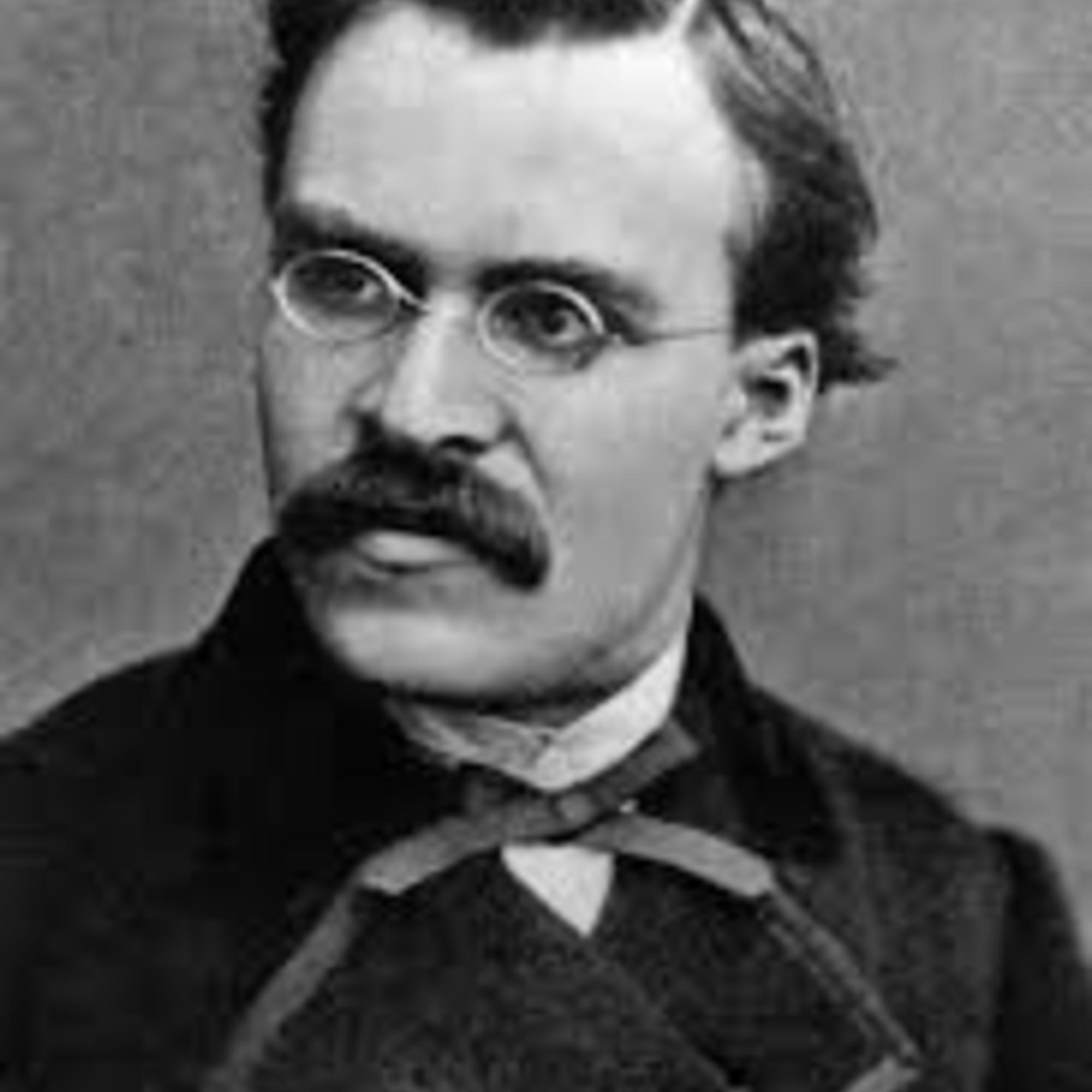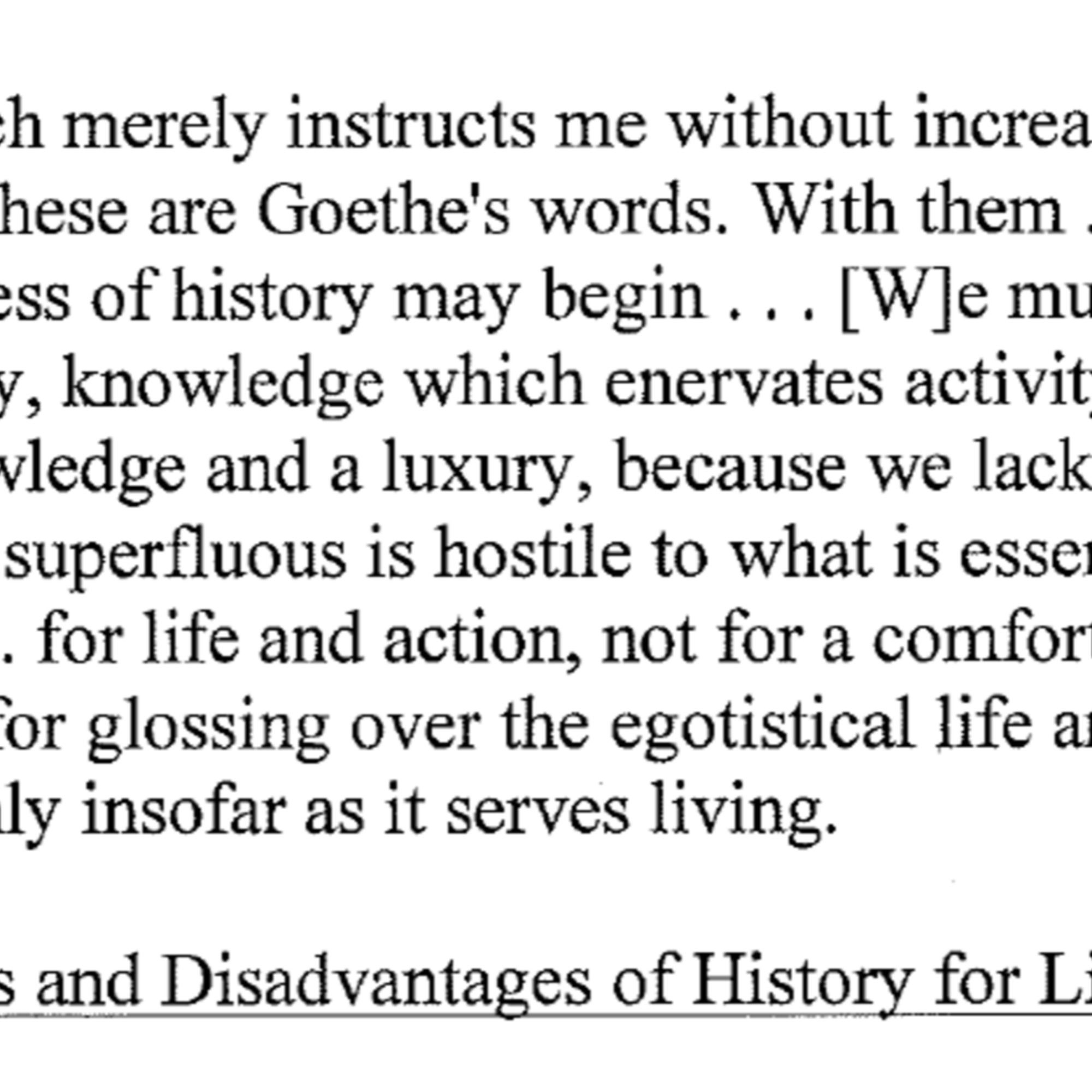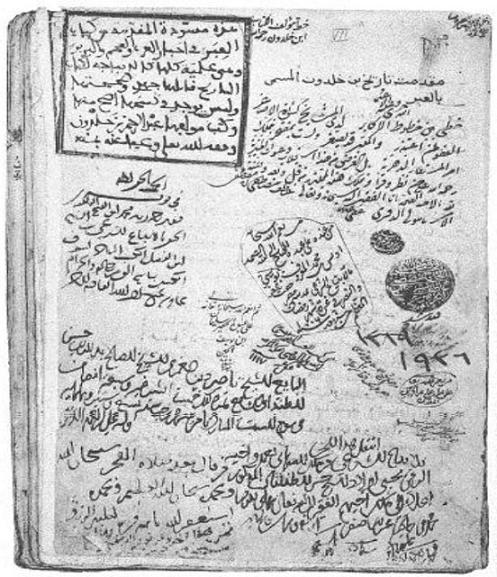Ibn Khaldun and Frederich Nietzsche: On the Recording and Use of History
In 1377, Ibn Khaldun wrote “The Muqaddimah,” an early view of history and the ways in which it should be recorded. Many years later, in 1874, philosopher Frederich Nietzsche also wrote on the matter of history in his work, “On the Uses and Disadvantages of History for Life.” At first glance, it seems that the two have little to do with each other – Ibn Khaldun’s work seems to focus on the method and craft of historians, while Nietzsche instead spoke to the use and value of history. In reality, however, the two are much more connected than they seem. Here I will discuss Ibn Khaldun’s beliefs about the process of recording history and how they relate to Nietzsche’s belief that all history is useless if not used to guide future action. To do so, I will work with a brief excerpt from “On the Uses and Disadvantages of History for Life,” shown below, and short selections from “The Muqaddimah.”
In “The Muqaddimah,” pictured here, Ibn Khaldun outlines the following seven rules as a guide for the recording of History:
- ...Partisanship towards a creed or opinion...
- ...Over-confidence in one's sources...
- ...The failure to understand what is intended...
- ...A mistaken belief in the truth...
- ...The inability to place an event in its real context
- ...The common desire to gain favor of those of high ranks, by praising them, by spreading their fame...
- ...The most important is the ignorance of the laws governing the transformation of human society."
Interestingly, these guidelines don’t differ much from today’s perception of history, and though there are counterintuitive moments in The Muqaddimah – for example, Ibn Khaldun’s intense focus on religion (a definite creed and opinion) as a guiding force – it is clear that the overarching focus is on accuracy and truth as most important in the recording of history.
This belief is strongly supported by Nietzsche’s opinion in “On the Uses and Disadvantages of History for Life.” Shown above, the excerpt from his work focuses on the importance of history as a learning tool – one that is only useful and worthwhile if it can be uses to guide and influence one’s choices in the future. Though indirectly, this idea is impossible without the implementation of Ibn Khaldun’s seven rules in the recording of history. Without them, recorded history would be inaccurate and misleading, thereby rendering it useless for the purposes of informing the actions of societies in the future.
The most prominent example of this is Ibn Khaldun’s final statement, that the most important rule is the ignorance of the laws governing the transformation of human society. This statement is nearly identical in intention to Nietzsche’s assertion that “We need [history] for life and action, not for a comfortable turning away from life and action or merely for glossing over the egotistical life and the cowardly bad act.” Effectively, Nietzsche’s intent is that history is dysfunctional and worthless if not used in a way that guides and improves lives, just as Ibn Khaldun insists that it is useless if not questioning the existing ways and wills of the world. In that sense, both Ibn Khaldun’s rules for recording history and Nietzsche’s intentions for its use exemplify the same end goal: that history serve not only as a record but as an accurate and critical reference for the future iterations of that society.
In this way, both Ibn Khaldun’s and Nietzsche’s work address not only the creation of History as a subject but also the use of history after it has been created and passed on to others. More so than simply the art of recording History, the value that recorded history has after its creators are gone is of the utmost important to both authors, who through their discussion of history have both created it and influenced its use.
Sources:
Muhammad Kujjah. "Survey on the Development of the Historical Method among Muslim Scholars until Ibn Khaldun". FSTC. Retrieved 2008-02-21.
Khaldun, Ibn. "The Muqaddimah, trans. Franz Rosenthal." (1967).
Nietzsche, Friedrich. "On the Uses and Disadvantages of History for Life. Untimely Meditations." Trans. RJ Hollingdale. Cambridge: Cambridge University Press (1983): 57-123.




